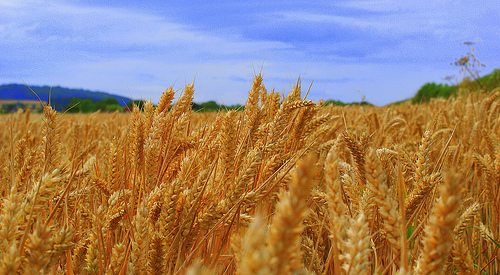

Environment
High atmospheric carbon ‘significantly reduces’ nutrients in most important crops
Rising levels of atmospheric carbon dioxide may cause some crops to become significantly less nutritious in the coming decades, with potentially significant impacts on the health of billions of people, a new study has warned.
Researchers from across the globe grew multiple varieties of wheat, rice, soybeans, maize and other crops in simulated conditions similar to those expected worldwide by the middle of the century.
Their findings, published in the journal Nature, show that the nutritional quality of many of the world’s most important crops fell when exposed to this more polluted environment.
Though the researchers were unable to pinpoint why, levels of zinc and iron fell significantly in wheat, rice, field peas and soybeans. Wheat and rice were also drained of protein content.
“It is possibly the most significant health threat that has been documented for climate change”, lead author Dr Samuel Myers from Harvard School of Public Health told the BBC.
“We found that close to 2 billion people are getting at least 70% of their iron and zinc from these grains and legumes. So reductions in those crops are potentially quite worrisome in terms of increasing those deficiencies.”
It is estimated that deficiencies of these important nutrients already cause an estimated loss of 63m life-years annually.
The study offers a timely warning of the dangers of rising carbon levels. April of this year proved to be the first month in human history where atmospheric levels of CO2 averaged at over 400 parts per million (ppm).
This new research used a system that kept ground-level atmospheric CO2 at 550ppm, the level expected around the world by 2050.
The findings of Myers and his colleagues will also add to fears over how, in an increasingly warm, crowded and polluted world, humanity will sustainably and fairly feed itself.
One recent Oxfam report warned that world hunger could be prolonged for decades because our global food system is “woefully” unprepared for the impacts of climate change.
Scientists have estimated that climate change will cause average crop yields to drop by 2% each decade, while demand increases by 14% each decade.
To make matters worse, a third of all the food the world produces is currently discarded or lost, according to the World Bank. Experts say a rapid change in consumer and commercial behaviour in the developed world is desperately needed to cut the waste.
Photo: Lauren Tucker via Flickr
Further reading:
April carbon dioxide levels above landmark 400ppm threshold for entire month
Climate change could prolong world hunger for decades, says Oxfam
Climate change could reduce crop yields as soon as 2030
Leaked IPCC report warns of social and economic impact of climate change


 Environment12 months ago
Environment12 months agoAre Polymer Banknotes: an Eco-Friendly Trend or a Groundswell?

 Features11 months ago
Features11 months agoEco-Friendly Cryptocurrencies: Sustainable Investment Choices

 Features12 months ago
Features12 months agoEco-Friendly Crypto Traders Must Find the Right Exchange

 Energy11 months ago
Energy11 months agoThe Growing Role of Solar Panels in Ireland’s Energy Future




























